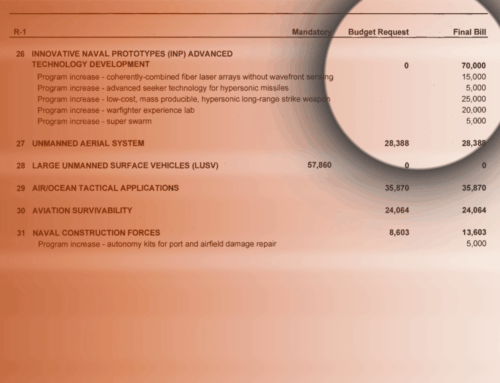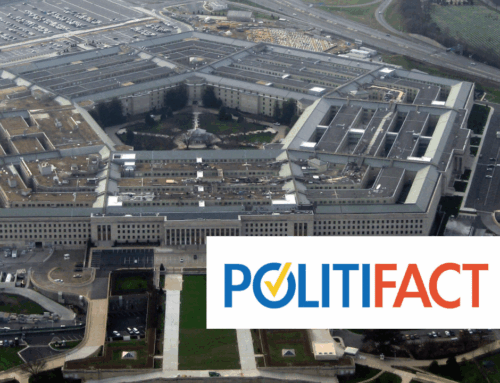The White House has targeted several contracting reform initiatives in the Senate defense authorization bill as veto-worthy, though its objections often miss the mark.
A Statement of Administration Policy (SAP) released Tuesday contained a list of bill provisions that prompt the veto pen of President Bush, several of them related to contracting. First among these would incorporate into law DOD guidelines that prohibit private security contractors from performing “inherently governmental” functions in combat. Though the administration maintains the provision defines “most security functions” as inherently governmental, the White House itself (in an Office of Management and Budget circular) agreed with DOD that inherently governmental functions are those that impact peoples’ “life, liberty or property.”
The SAP also flagged a proposed database that would track past performance of contractors in order to help acquisistion officers make more informed decisions. The administration claimed that requirements to collect information such as past civil suits or state and local actions were “unwieldy” and might unfairly disqualify contractors, though the legislation doesn’t set a threshhold for debarment. The administration also objected to language that would prevent DOD from using contractors to interrogate detainees because contractors “may possess the best combination of skills” to extract information—skills we would hope our own military would possess.
The warnings echo a May 22 SAP on the House version of the bill that marked for death a “Clean Contracting Amendment” sponsored by Rep. Henry Waxman (D-CA). The amendment incorporates several earlier stand-alone bills, and backs the conduct database as well as a provision prohibiting conflicts of interest among contractors. The Senate bill also contains a conflict-of-interest provision, which the White House did not target—perhaps because the Government Accountability Office reported earlier this year that DOD didn’t have policies in place to prevent such conflicts among the contractors that now comprise up to 88 percent of some offices’ staff.
Defense Authorization bills are the primary vehicle for regulating how DOD buys and sells goods and services, and recent ones reflect the growing impatience with DOD’s contracting failures. The White House (and contractor trade associations) complain that more legislation will only slow an already hyper-bureaucratized system. That may be true in some instances, but the taxpayer savings incurred by better contractor selection should pay for DOD’s extra efforts. Waxman’s amendment survived when the full House passed the bill last May: If the Senate can hold on to its version, the onus is on the White House to listen up and swallow hard.










